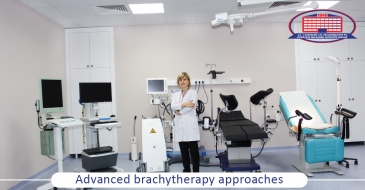
Consultation days with doctors in various fields have been successfully implemented at National Center of Surgery since 2012.
In the news you will be informed about the following:
- Clinical case;
- Management of atherosclerosis of carotid arteries and stroke prevention.
One of the promotions practically saved a woman's life and we’d like to discuss this clinical case in the article.
Clinical case
76 years old patient referred to National Center of Surgery and consulted with the neurologist free of charge on an outpatient basis in 2017.
Clinic’s Neurologist Tea Shubladze was in charge of the promotion.
Woman suffered from the following symptoms:
- Severe headache;
- Non-systemic dizziness, loss of coordination;
- General weakness;
- Emotional lability;
- Numbness in the extremities;
- Vomiting.
She told the doctor that she has memory loss and loss of concentration, experiences difficulty walking.
Medical history showed:
- Aortic coronary stenting (2014);
- Ischemic stroke (2016);
- Arterial hypertension.
As doctor-in-charge Tea Shubladze stated in an interview with us, the patient's complaints periodically became acute with high blood pressure, which significantly lowered her ability to work and required admission to the hospital.
Doppler imaging of cerebral blood vessels diagnosed narrowing of blood vessels, incomplete-filling of lumen took place and stenosis was at 48%.
Statin therapy and symptomatic treatment were ordered.
Doctor-in-charge monitored patient for 2 years; simultaneously lipid spectrum was also being monitored.
As a result, hemodynamic stabilized, neurological complaints alleviated, patient didn’t have paroxysmal attacks.
Radiology confirmed positive dynamic, Doppler imaging didn’t show any arterial stenosis.
Patient could’ve been under the risk of recurrent stroke due to stenosis, if not for prompt and adequate treatment
For your knowledge, annually around 4.5 million people die of stroke, and the rate of disability is high because of the disease!
What should you know about atherosclerosis of carotid arteries?
Prompt detection and preventive measures for atherosclerosis of carotid arteries significantly reduce the risk of stroke.
Carotid artery screening is an essential precondition for stroke prevention.
“Brachiocephalic artery screening method was established at National Center of Surgery 2 years ago, using which around 1000 patients were consulted. Screening detected a large contingent of patients affected by carotid artery atherosclerosis, as well as diagnosed vascular tortuosity in some cases, and seldom vascular coiling. We were able to observe dynamics in the mentioned patients. As a result, positive dynamics were detected in radiological, as well as neurological status improvement. There were some cases when the level of stenosis progressed despite medication treatment; Dynamics in such patients didn’t improve because they didn't completely follow doctor's recommendations on a healthy lifestyle. I think prompt conservative treatment, healthy lifestyle, regular physical activities, blood pressure control, healthy nutrition, management of chronic disease, saying no to tobacco significantly reduces the level of atherosclerosis progression. I’d like to mention that some patients at the early stage of carotid artery atherosclerosis don’t have any complaints or only see a doctor at a terminal stage (when surgical treatment is inevitable due to the level of stenosis) due to various reasons, and also, the mentioned disease frequently manifests with ischemic stroke and patient don’t even know their carotid arteries are narrowed” – Stated Dr. Tea in an interview with us.
Implementation of neuro-visual measures made clear that 40-50% of focal ischemia is caused by extracranial artery atherostenosis, whereas 20% - by damages to intracranial arteries,
In addition, relations between pathologies of coronary arteries and damages to carotid arteries are important – commonly, people affected by coronary artery diseases develop pathologies of carotid arteries after several years, mentioned clinical case is an example of it.
Wish you health!
What are patients interested in
Hydrocephalus
Qauestion:: Hello, I want to know how threatening is hydrocephalus for 19 years old girl and is it enough to treat it with medication and needles
Parkinson’s
Qauestion:: Symptoms and treatment of Parkinson’s
Numbness in upper and lower extremities
Qauestion:: I feel numbness in upper and lower extremities and as a result, I experience onset of chest pain. Also, this condition lasts day and night. I’m interested in causes of it.
FATIGUE SYNDROME
Qauestion:: Hello, I often heave shortness of breath, also headaches (especially when nervous), blurred vision during which I perceive surroundings as if I’m half asleep, feeling fatigued since morning. What do these symptoms mean?
Tinnitus (noise and ringing in the ears)
Qauestion:: Hello, I have noise and ringing in my ears for 3 months. What can be cause of it and how can I treat it. Thank you in advance.
Hemicrania continua
Qauestion:: I’m 74 years old. I’ve suffered from migraine headache since my youth. In menopause, I've experienced many severe difficulties and that’s why it hasn’t alleviated and I’m still suffering from it. I take sleeping pills –donormyl. It helps me to sleep, but I still have a headache in the morning. It alleviates when I take citramon + caffeine. Generally, I need a lot of sleep. I was a very active scientist and lecturer. I still have lectures. How to alleviate headaches?










